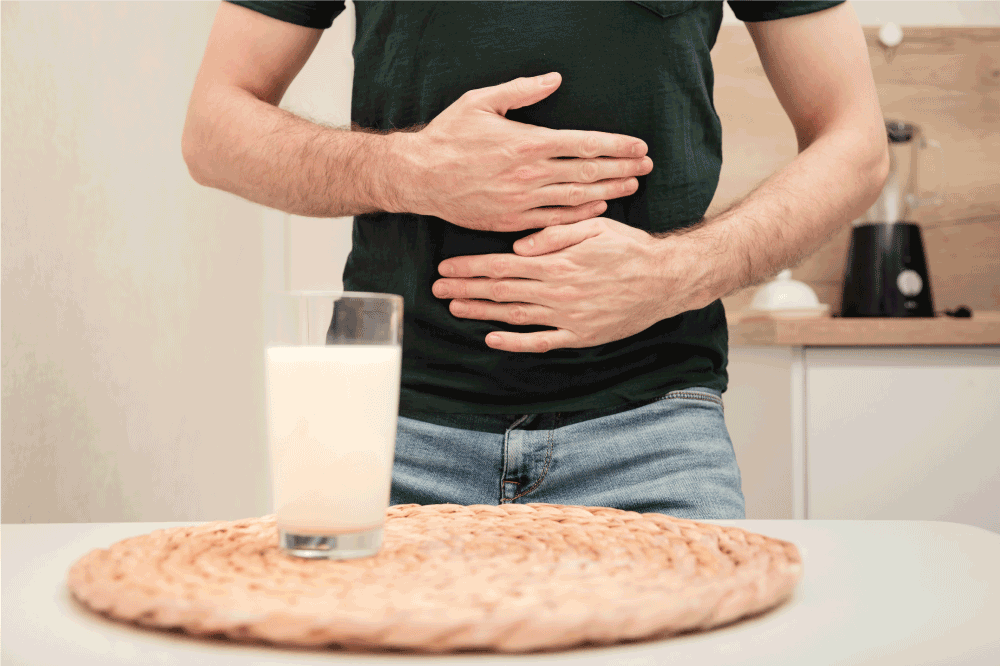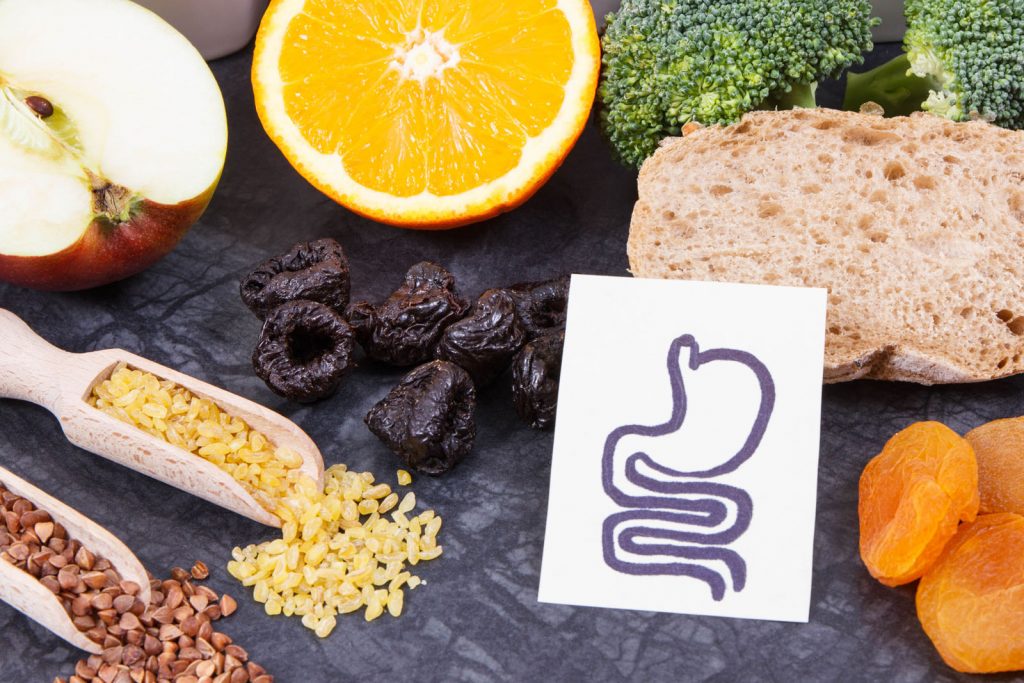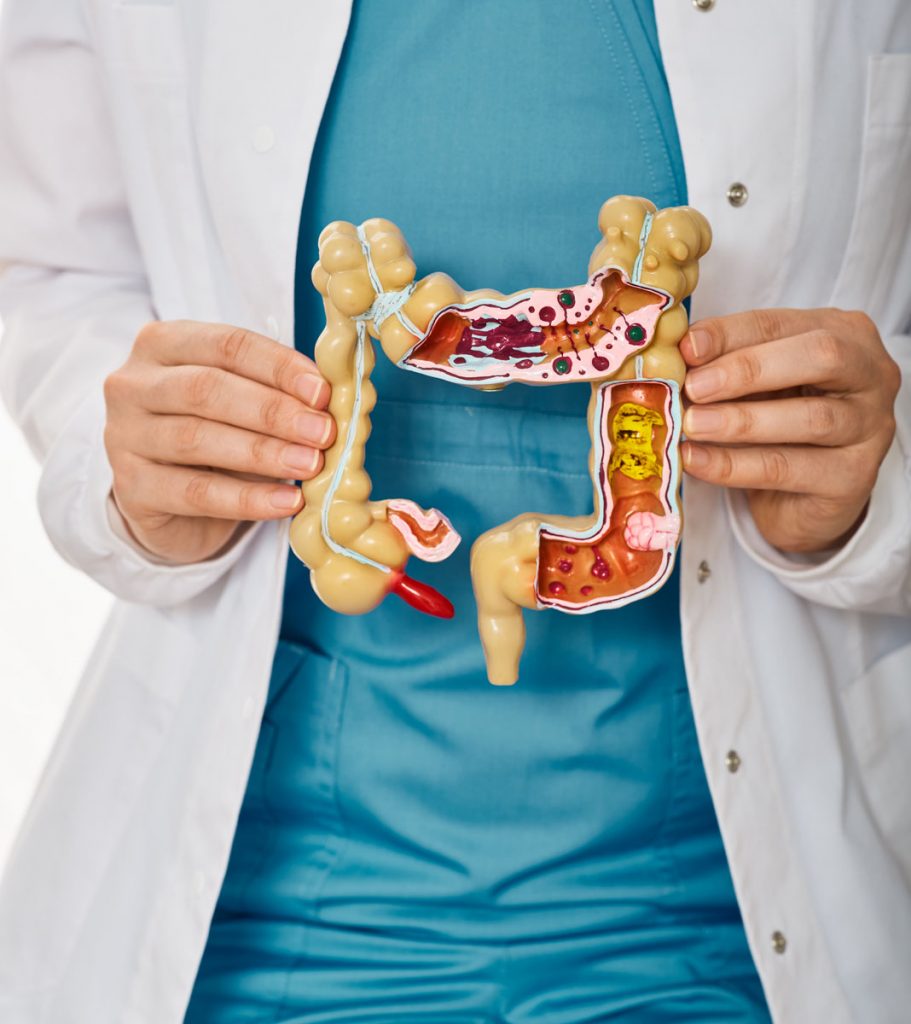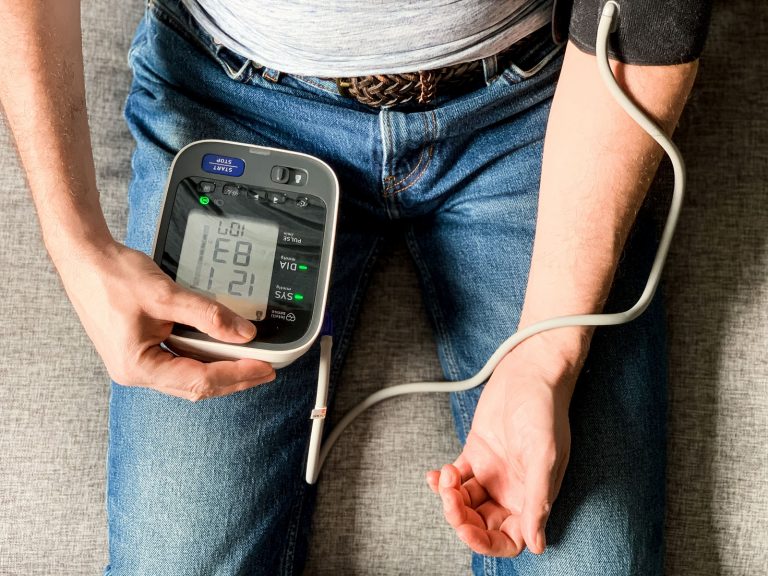Discover the causes, symptoms, and solutions of IBS in men. Understand how we support our patients and get insights on managing this condition effectively.
Understanding IBS in Men: Causes, Symptoms, and Solutions

Key Takeaways
- IBS is a complex condition – which varies in symptoms, making it tricky to both diagnose and treat.
- Multiple underlying causes – IBS is related to gut dysbiosis, SIBO, impaired intestinal barrier function & food intolerances
- Treatment often falls short – Many approaches focus only on symptom relief and fail to address the root cause.
- Food intolerances are not always the cause – Eliminating trigger foods can help ease symptoms but don't provide long-term relief.
- Stress and mental health matter – The brain impacts IBS symptoms, making stress management critical.
- Integrative medicine - We use both herbal and nutritional medicines, microbiome support, and dietary strategies for long-term relief.
Introduction
Irritable Bowel Syndrome (IBS) is a digestive disorder which causes discomfort, bloating, and irregular bowel habits which greatly affect the quality of life of many men. Despite how common it is, IBS remains a mysterious and often frustrating condition due to the variety of symptoms and the lack of a clear and identifiable cause. Unlike diseases like ulcerative colitis and Crohn’s disease, IBS is classified as a syndrome. This means it involves a group of symptoms
without a specific underlying disease. Historically, IBS was dismissed as a psychosomatic disorder that was “all in your head.” Fortunately, IBS is now recognised as a legitimate gastrointestinal disorder, although it’s often poorly managed. Current treatments focus on alleviating the symptoms of IBS instead of actually fixing the underlying problems- which is an unfortunately common theme in conventional treatment of modern chronic diseases.
This blog will explore the various aspects of IBS, including causes, diagnosis, and natural treatment options, with a focus on an integrative medicine approach for long-lasting relief.
What is Irritable Bowel Syndrome (IBS)?
Irritable Bowel Syndrome (IBS) is a common condition that affects the digestive system of about 30% of Australians. It can cause symptoms like stomach pain, bloating, and changes in bowel habits which often includes diarrhoea, constipation or both.
IBS is divided into different types based on bowel habits. The most common types of IBS are IBS with diarrhoea (IBS-D), IBS with constipation (IBS-C), and mixed IBS (IBS-M).
It’s important to understand that IBS is a syndrome, not a disease and is diagnosed through symptom patterns. This makes IBS a tricky and often frustrating issue for those who have it, and can’t find the answers or support they need to relieve their symptoms and improve their digestive health.

What Causes IBS?
The exact cause of IBS is not clear. This makes it hard to treat, and awful for patients who are suffering without a solution.
From an integrative medicine viewpoint, IBS is a complex condition often driven by multiple underlying causes, many of which extend beyond conventional gastrointestinal concerns and observable intestinal damage. Identifying the actual root cause is essential for effective treatment- and in many cases, there is more than one cause and they can exacerbate each other. Some of the often-overlooked contributors to IBS include:
1. Gut Dysbiosis
IBS is closely linked to gut dysbiosis (this is an imbalance in the gut’s bacteria). Recent studies show that the balance of gut flora has a big effect on IBS symptoms. Changes in the types and amounts of these microorganisms can affect symptoms significantly.
People with IBS often have lower levels of beneficial gut flora, such as Lactobacilli and Bifidobacteria, while harbouring an excess of harmful strains like E. coli and Clostridia. An altered ratio of Firmicutes to Bacteroidetes is also common. Testing for microbial balance and then treating with specific strains of probiotics and prebiotics can restore healthy gut flora and reduce symptoms. I have found that probiotic strains such as Lactobacillus rhamnosus GG, Bifidobacterium animalis, and Lactobacillus acidophilus have shown effectiveness in easing IBS symptoms- but I always test before just throwing random supplements at my patients!
2. Small Intestinal Bacterial Overgrowth (SIBO)
SIBO is a subset of gut dysbiosis. This occurs when bacteria excessively colonise the small intestine (they should only be in the large intestine!) These bacterias produce gases, and interfere with digestion, bowel movements and nutrient absorption. SIBO is observed in up to 80% of IBS cases.
SIBO wasn’t accepted in mainstream medicine as being legitimate for a longtime. Fortunately, it now is, but is still not routinely tested for. Not only that, patients need to prepare for the breath test in a very specific manner in oder for the results to be accurate- and none of my patients have ever been given a protocol to follow prior to the test. Additionally, the generic test is not sensitive to the variations in SIBO! I test differently for SIBO through a specific provider, who are experts in this field, and my patients undergo a preparatory stage in order to get the most accurate results.
Treating SIBO depends on the type of bacterial overgrowth, and may involve herbal antimicrobials and supporting bowel movements to prevent recurrence
3. Impaired Intestinal Barrier Function
For a long time this was known as leaky gut or increased intestinal permeability. The intestinal barrier prevents harmful substances from entering the body. This barrier is influenced by the gut microbiome, bacterial and parasitic infections, hormones, alcohol, diet and allergens, inflammatory mediators, and the nervous system. When the barrier is disrupted (leaky), bacterial metabolites and toxins, such as lipopolysaccharides (LPS), leave the GI tract and enter the bloodstream. This can trigger immune responses and inflammation.
Research shows that intestinal permeability is associated with systemic diseases, including obesity, non-alcoholic fatty liver disease (NAFLD), cardiovascular disease, inflammatory bowel disease, neurodegeneration, and type 1 diabetes.
And more to the point- research also shows that intestinal permeability is associated with the increased severity of IBS symptoms. Impaired intestinal barrier function is another pathological mechanism that was dismissed by conventional doctors until recently.
I routinely test my IBS patients for impaired intestinal barrier function, and have specific supplement protocols for healing gut lining.
4. Post-Infectious IBS
Post-infectious IBS occurs when an episode of bacterial or parasitic infection leads to lasting gut dysfunction. Parasitic infections, such as Blastocystis hominis or Giardia, can trigger IBS-like symptoms. These feed into more problems, as a compromised immune system and gut environment can make you more susceptible to subsequent infections and imbalances- including SIBO.
An integrative approach involves addressing not only the infection with antimicrobials but also strengthening the gut’s defences with supportive therapies like digestive enzymes, prebiotics and probiotics, and immune-boosting herbs.
5. Non-Celiac Gluten Sensitivity and Food Intolerances
Food intolerances are common in IBS patients, and can lead to increased gastrointestinal symptoms. It is a chicken and the egg situation though- are the gut symptoms because of food sensitivities, or are the food sensitivities there due to another underlying cause which makes the gut more susceptible??
Gluten sensitivity (distinct from coeliac disease) has been increasingly recognised in IBS patients. A comprehensive elimination diet can help identify trigger foods, but integrative treatment goes beyond dietary management. Healing the lining of the gastrointestinal tract, rebalancing the microbiome, and addressing underlying imbalances like SIBO or gut infections are critical for resolving food sensitivities.
6. Pyschogastroenterology (Gut-Brain Axis)
Pyschogastroenterology is the interaction between your nervous system and your gut- also called the gut-brain axis. Studies show how closely these two systems are intertwined. Emotional stress and anxiety are known to affect the nervous system, and research confirms anxiety and stress can make IBS symptoms a whole lot worse. So in addition to the above causes, integrative medicine also considers the role of lifestyle factors like chronic stress, mental health and lack of sleep which can exacerbate IBS symptoms by disrupting the gut-brain axis.
This pathway involves a complex mix of nerves, hormones, and the immune system. And in people with IBS, this connection and its functions appears to be faulty. Because of this, men with IBS feel gut sensations differently and this can create extreme discomfort.
IBS is a huge part of my practice. To manage IBS effectively, it’s really important to take a thorough health history in order to identify the causes and triggers for each individual person. Symptoms of IBS can become a vicious cycle, aggravated by avoidance of foods (FODMAP), constipation enhancing microbial overgrowth and diarrhoea creating inflammation. Herbal and nutritional medicine gives us an entire tool kit to support whatever aspect of your health needs attention for IBS relief. I often find prescribing stress support plays a big role in getting great and long lasting results.
How Is IBS Diagnosed?
Diagnosis of IBS can be difficult. If there are no clear causes, there can be no exact tests! Also, the symptoms can be similar to those of other gut issues. Because of this, doctors usually look closely at symptoms and medical history to determine if someone has irritable bowel syndrome.
Irritable bowel syndrome (IBS) is often called a diagnosis of exclusion. This means doctors rule out other conditions- and when there is no other explanation for gastric symptoms, a diagnosis of IBS may seem like the best fit! Tests to exclude other pathologies could include blood tests or biopsy for coeliac disease or inflammatory bowel disease. Stool tests might be done to look for infections or inflammation. Sometimes, a doctor may suggest a colonoscopy to look closely at the colon’s lining.
Along with this, healthcare providers may use certain guidelines, like the Rome IV criteria, to assess IBS symptoms and treatment progress.
The Signs and Symptoms of IBS in Men

Irritable bowel syndrome manifests with a range of symptoms that affects every man (and his quality of life) differently. While the experience of symptoms of irritable bowel syndrome can vary widely, common IBS symptoms include persistent abdominal discomfort, ranging from mild cramping to intense pain.
Altered bowel movements are characteristic complications of IBS, with individuals experiencing episodes of diarrhoea, constipation, or a combination of both. Bloating is another common symptom, leading to a feeling of fullness and discomfort in the abdomen. Other common symptoms of irritable bowel syndrome include mucus in stool, urgent need to defecate and incomplete evacuation (a sensation of not completely emptying the bowels after a bowel movement).
I monitor these symptoms with my patients so we can assess our treatment progress.
Natural Treatments For IBS
Conventional medical treatments for IBS usually focus on giving symptom relief, and fail to address the real causes of the problem. This can make people feel stuck in a cycle where they rely on food restriction or medication (some which come with side effects), without making any genuine progress.
IBS treatment shouldn’t be a one-size-fits-all plan. We need look into each person’s health history, daily habits, and lab results so we can get genuine and long-lasting results.
Understanding GORD and Its Relation to IBS
GORD and irritable bowel syndrome (IBS) are two common digestion problems which often co-occur. Even though they show up in different ways, both disrupt the digestive system.
GORD involves acid reflux and heartburn and mainly targets the oesophagus. On the other hand, IBS includes lower gut symptoms like stomach pain, bloating, constipation, and diarrhoea. The exact links between GORD and IBS aren’t totally clear. Research suggests that changes in how the gut moves and digests, and inflammation in the digestive system play a part in both.
Also, new studies point out that the gut microbiome might impact both conditions. When gut bacteria are not balanced, it has been linked to problems with both GORD and IBS.
What Is The Best Diet For IBS?
Diet is very important for managing IBS symptoms. Identifying and excluding dietary triggers is important for symptom control- but as I discussed above, this is a chicken and egg situation.
Following a balanced and healthy diet while reducing processed foods, extra sugars, and unhealthy fats can help support gut health. The low FODMAP diet is frequently prescribed for IBS. This diet limits certain fermentable carbs. However, I don’t agree with this being the best way to handle all cases of IBS and I certainly don’t agree with it being a long-term solution.
Sticking to a strict low FODMAP diet for a long time can cause nutritional deficiencies, and deplete the helpful bacteria in the gut. Please ask for help from a qualified nutritionist. They can help figure out if the low FODMAP diet is right for you and give proper advice based on your needs.

What Are The Best Supplements for IBS?
This is a question I get asked regularly. Once again, there’s not a one-size-fits-all recommendation for natural treatment options but here are some of my favourite (and highly researched) supplements for IBS:
Mentha piperita or peppermint. Studies have found peppermint to be significantly superior to placebo for global improvement of IBS symptoms, and also for reducing IBS-related pain. Please note: this herb is contraindicated in reflux.
Pectin. Pectin is a soluble fibre (polysaccharide) which is found in many fruits. Studies have shown that there are multiple benefits of pectin for IBS sufferers, including improving intestinal barrier function (through decreased small intestinal permeability), balancing colonic microflora and relieving systemic inflammation and IBS symptoms (in IBS-D specifically).
Quercetin. Research suggests that quercetin may support the management of irritable bowel syndrome (IBS) by reducing abdominal hypersensitivity and visceral pain through a modulation of serotonin in the colon.
Matricaria chamomilla or chamomile. Studies show that chamomile extract may alleviate irritable bowel syndrome symptoms, including significant reductions in abdominal pain, bloating, and nausea.
There are a lot of great products I work with in clinic that combine different herbs and nutrients, for repair and restoration of the digestive tract. By focusing on each person’s specific needs and situation, herbal and nutritional medicine can improve digestive health and reduce your IBS symptoms long-term.
Conclusion
Although IBS is complex, there is hope. By understanding the causes of IBS and using a tailored approach that includes natural treatments and dietary adjustments, men can obtain relief from the discomfort of IBS. IBS is a condition with a range of contributing factors, and any treatment protocol should reflect that. By working with a functional medicine provider and using thorough testing, nutritional guidance, and stress management we can make a huge and long-lasting difference for men suffering from IBS.
Frequently Asked Questions
Can you cure IBS?
While there is no definitive cure for irritable bowel syndrome, the condition can be effectively managed and symptoms significantly reduced. IBS is a complex, multifaceted syndrome, meaning it doesn’t have a single cause or treatment that works for everyone. However, by identifying and addressing underlying factors like gut dysbiosis, small intestinal bacterial overgrowth (SIBO), impaired intestinal barrier function, food intolerances, and stress, it is possible to manage the condition and reduce both the severity and frequency of symptoms.
What foods cause IBS?
Trigger foods can be different for each person. However, some common ones that can cause IBS symptoms are dairy products, gluten-containing grains, and high-FODMAP foods such as onions. Understanding your triggers and tailoring an appropriate approaches can significantly improve digestive health and overall well-being. A food diary can help you with this process.
How effective are natural treatments for IBS?
The effectiveness of natural treatments for IBS are now established through research, but differ based on the person and the exact treatments being looked at. Natural treatments can be enhanced by making lifestyle changes- even doing simple things like chewing your food more times!












